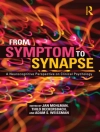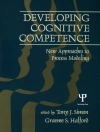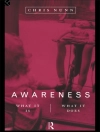Gain an understanding of the most important autism spectrum assessments and evaluation techniques
Essentials of Autism Spectrum Disorders Evaluation and Assessment, 2nd Edition, helps professionals learn how to identify, assess, and diagnose autism spectrum disorders (ASD). In a time when detection and awareness of ASD are on the rise, this book addresses the primary domains of assessment, discusses the purpose of assessment, suggests test instruments, and identifies the unique clinical applications of each instrument to the diagnosis of ASD. As with all volumes in the Essentials of Psychological Assessment series, this book consists of concise chapters featuring callout boxes highlighting key concepts, easy-to-learn bullet points, and extensive illustrative material, as well as test questions that help you gauge and reinforce your grasp of the information covered.
* Understand the issues in identification and assessment of autism spectrum disorders
* Get expert advice on avoiding common pitfalls and misinterpretations
* Quickly and easily locate pertinent information, thanks to the convenient, rapid-reference format
* Access resources and tools to aid in performing professional duties.
This straightforward manual includes samples of integrated reports from diagnostic evaluations and prepares clinical and school psychologists, and clinicians from allied disciplines, to effectively evaluate and assess ASD.
विषयसूची
Series Preface
Acknowledgments
One: Overview
Diagnostic Criteria
Severity Levels
Clinical Specifiers
Symptom Expression across the Spectrum
References
Two: Assessment of Developmental and Cognitive Skills
Selecting Instruments
Developmental and Early Cognitive Measures
Measures of Cognition and Intelligence in School-age Individuals and Adults
Measures of Nonverbal Intelligence
Neuropsychological Assessments
Qualitative Observations
Summary
References
Test Yourself
Answers
Three: Speech, Language, and Communication Assessment
Receptive Language
Expressive Language
Pragmatic Language/Social Communication
Stages of Language Development
Formulation of Findings
Summary
References
Test Yourself
Answers
Four: Assessment of Adaptive Behavior, Executive Functioning, and Behavioral Regulation Skills
Assessment of Adaptive Behavior
Assessment of Executive Functioning
Assessment of Behavioral Regulation Skills
Summary
References
Test Yourself
Answers
Five: Developmental History and Record Review
Clinical Interview
Methods of Collecting Information on Current and Historical Presentation
Summary
References
Test Yourself
Answers
Six: Direct Diagnostic Assessment
Screening Measures for Risk of ASD
Diagnostic Rating Scales
Direct Diagnostic Assessment
Consideration for First-time Diagnostic Evaluations with Adolescents and Adults
Direct Measures of Autism Symptomatology
Options for Remote/Telehealth Diagnostic Assessments for ASD
Summary
References
Test Yourself
Answers
Seven: Diagnostic Differentials and Co-occurring Conditions
Intellectual Disability
Communication Disorders
Learning Disabilities
Attention Deficit/Hyperactivity Disorder
Anxiety Disorders
Depression & Mood Disorders
Obsessive-Compulsive Disorder
Tic Disorders and Tourette’s Disorder
Psychiatric Conditions in Adulthood
Summary
References
Test Yourself
Answers
Eight: Catching the Misdiagnosed, Late Diagnosed, and Missed for Diagnosis
Factors Related to Racial, Ethnic, Socioeconomic, and Geographical Disparities
Factors Related to Sex Differences in ASD Symptomatology
Factors Related to Gender and Sexual Identity Development
Factors Related to Subtle or Complex Symptom Expression
Summary
References
Test Yourself
Answers
Nine: Preparing for Transition to Adulthood
IDEA and Transition Planning
Assessments Supporting the Transition Process
Needs to Consider for Adulthood
Job Coaching and Vocational Training
Academic Accommodations and Modifications
Life Skills and Life Coaching/Mentoring
Transitional and College-Preparation Programs
References
Test Yourself
Answers
Ten: Diagnostic Formulations & Case Conceptualizations
Providing Feedback of Results
The Written Report
Case Samples
Case Sample 1: Initial Diagnosis–Toddler
Case Sample 2: Re-Evaluation : School-Aged Child With Complex Presentation
Case Sample 3: Initial Diagnosis: Adult Female
Chapter Summary
About the Authors
Author Index
Subject Index
लेखक के बारे में
CELINE A. SAULNIER, Ph D, worked in the Yale Child Study Center’s Autism Program for nearly a decade. Then, she joined the faculty at Emory University’s School of Medicine and the Marcus Autism Center. Currently, she owns her own company, Neurodevelopmental Assessment & Consulting Services.
PAMELA E. VENTOLA, Ph D, is an Associate Professor in the Yale Child Study Center and leads the Rare Disease and Pediatric Center of Excellence at Cogstate, supporting industry-sponsored clinical trials. She also has extensive clinical and research experience with diagnostic, developmental, and neuropsychological assessments with individuals with ASD across the life span.












